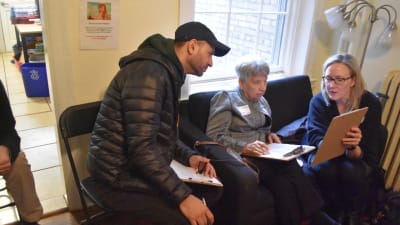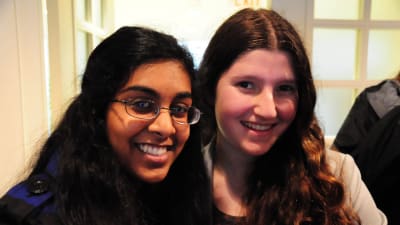SEGL STUDENTS NEGOTIATE THE ISRAELI-PALESTINIAN CONFLICT
The conflict between Israelis and Palestinians is certainly intractable, but is it impossible to solve? This was one of the key questions our students confronted last week as they met with three leading players in the dispute.On Monday, we heard a historical overview of the conflict and then broke into rotating discussion groups to talk through some of the dispute’s key elements. The students heard about the competing narratives that each side believes fervently and shares with its constituents, as well as key historical events and key current leaders.
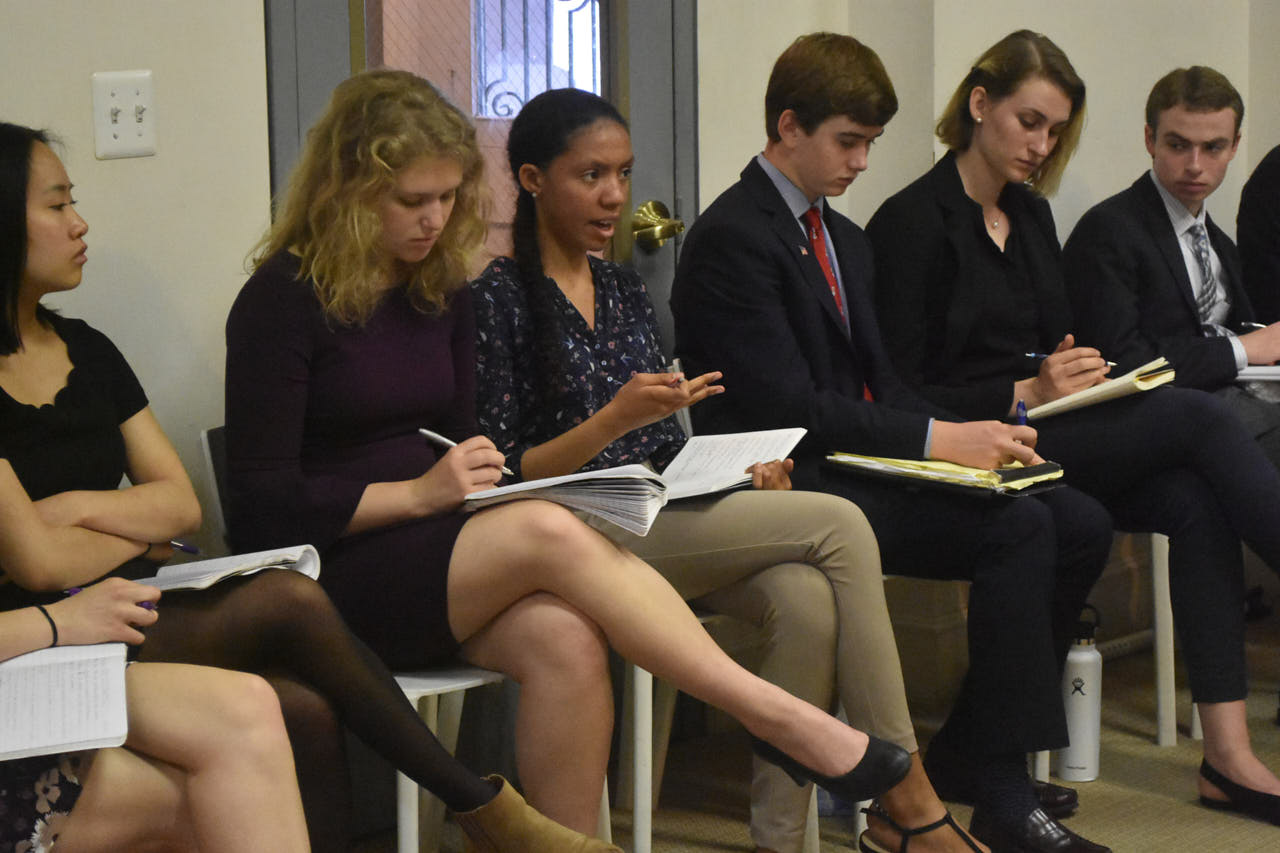
On Wednesday, we met with Dylan Williams, the Director of Government Relations (that is, the top lobbyist) for J Street, one of the principal pro-Israeli lobbying groups in DC. J Street is generally considered to be Zionist, but to the left of AIPAC, the most influential pro-Israeli advocacy organization that we have visited several times in the past. Williams painted a clear and generally hopeful view of the conflict, and discussed how lobbyists work with Members of Congress and their staffs.
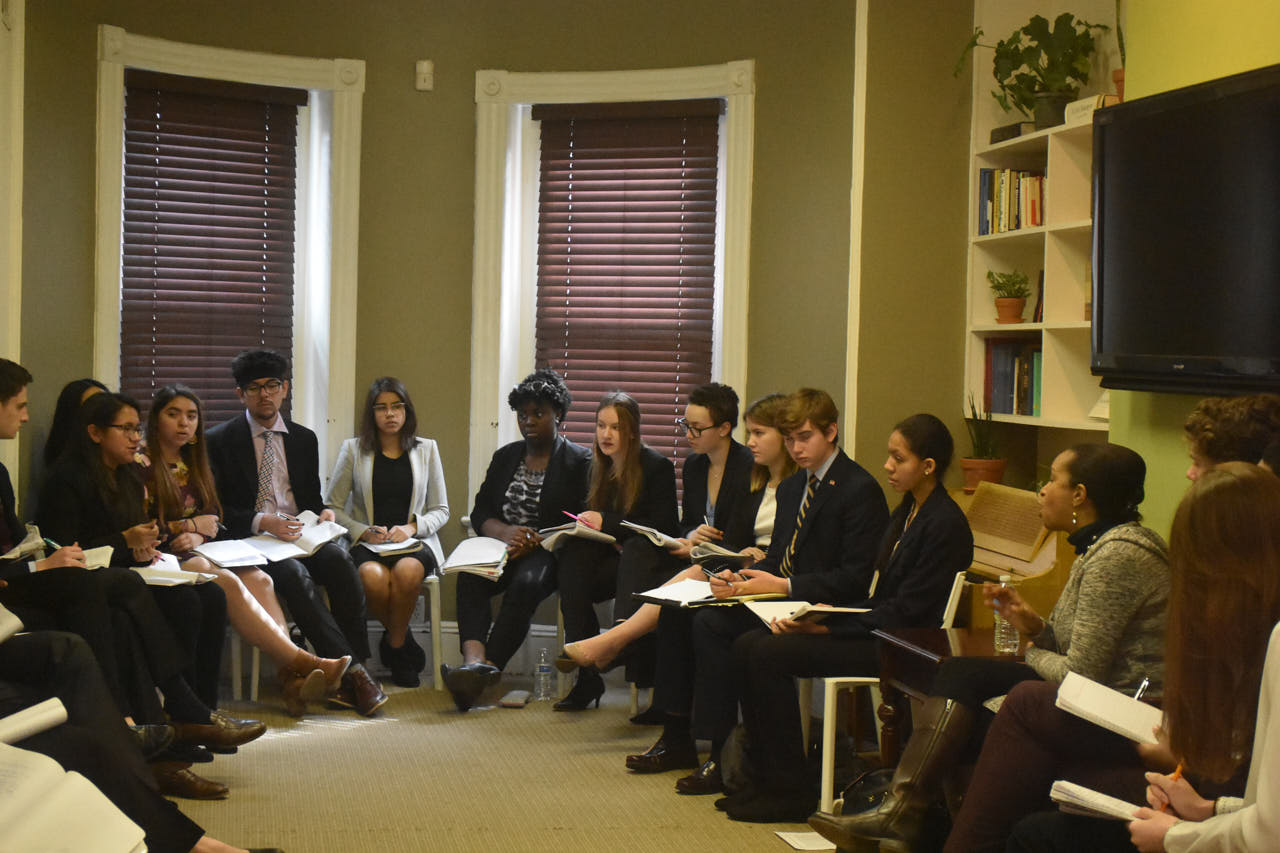
We then traveled to the Woodrow Wilson Center, just south of the White House, to meet with Aaron David Miller, one of the U.S. government’s top experts on the conflict. Miller has advised six Secretaries of State on the issue, most recently as Senior Advisor on Arab-Israeli negotiations, and written several books. He also served as President of Seeds of Peace, an organization that brings Arabs and Israelis together in Maine for several weeks each summer to find common ground. Miller’s overview of the dispute was organized and precise, though he was less optimistic than our other guests. One key element to success, he said, was strong leadership that can shape opinion rather than simply follow it.
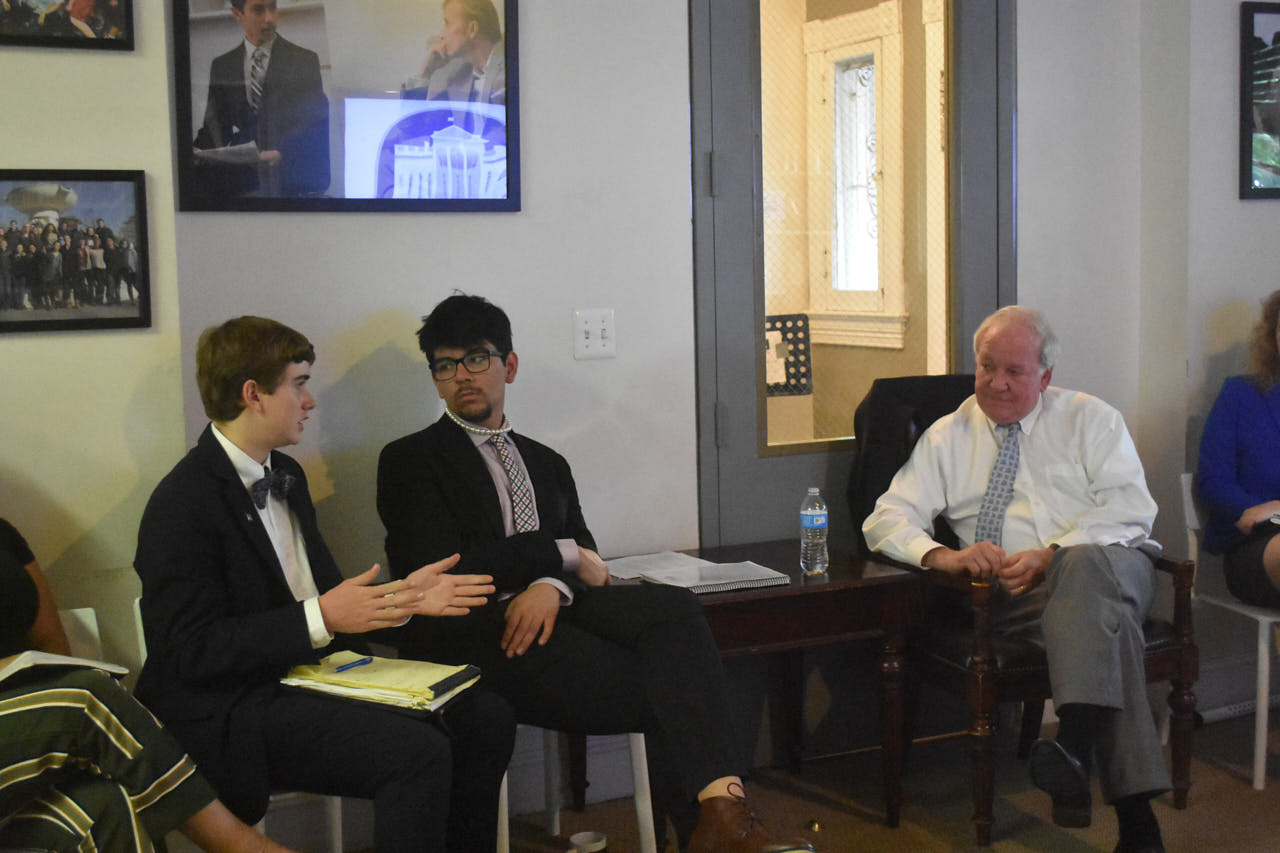
On Friday, we met with Ghaith al-Omari, a longtime SEGL guest expert, who served as a senior advisor to Palestinian President Mahmoud Abbas and a key negotiator at the 2000 Camp David Accords. (In fact, al-Omari worked on the Palestinian side of those negotiations as Miller was representing the U.S. government!) He is now Executive Director of the U.S. Task Force on Palestine. In a humorous moment, al-Omari described the negotiations for peace not as a pre-nuptual agreement or marriage, but as a divorce, and said shifting to that mentality would help forge progress.
The discussion that followed all of these speakers was a rich one, and our students’ willingness to respect and hear all viewpoints–while simultaneously seeking firm ethical ground–was again on display. Indeed, one cannot help but hope that the conflict’s future negotiators have similar traits.

